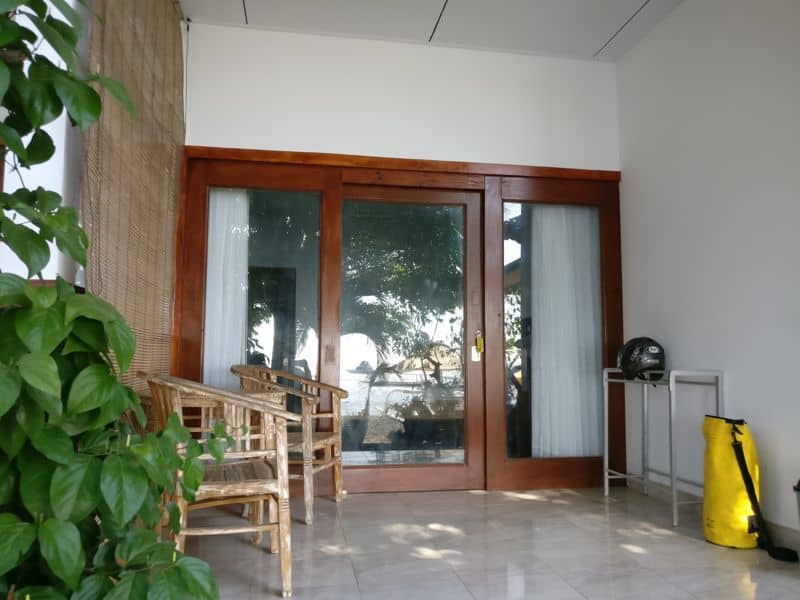Ever dreamt of a paradise that’s affordable? Well, in the heart of Southeast Asia, Bali is that dream come true then. While big cities like Singapore, Kuala Lumpur, and Hong Kong cost a lot more, Bali dances to a different beat. Here, you get to soak in rich experiences and discover that Bali can be cheap!
Beaches, lush green landscapes and volcanoes that look like a painting. Sounds dreamy, right? That’s Bali for you! It’s no surprise that this beauty is a favorite among travelers worldwide. In this article, I am about to explain why Bali is considered cheap. Whether you’re a smart traveler hunting for value or just someone craving a memorable trip without the costly price, Bali is your go-to. So, are you ready? Let’s go on this exciting ride and uncover the charm of Bali, where adventures await without costing a fortune.
Bali vs. Other Southeast Asian Destinations in terms of expenses
Just to see why people consider Bali being cheap, I am going to compare it with some other famous tourist destinations.
Singapore cost vs Bali

Singapore, in between Malaysia and Indonesia in Southeast Asia, is a city that never sleeps. It’s modern, it’s vibrant, and yes, it can be a tad more expensive, especially when you compare it to laid-back spots like Bali.
Thinking of jetting off to Singapore? Here’s a little sneak peek into your wallet’s future. On the accommodation front, you can snag shared rooms for a cool €14 a night. But, if you’re dreaming of those iconic Marina Bay Sands views, brace yourself! A night there can set you back by a whopping €471.
Foodies, rejoice! Singapore is a culinary paradise. Relish local delights at just about €25 a day. Do you have a taste for the finer things? A Michelin-starred dining experience awaits, though it’ll be a lot more pricier.
Boredom isn’t in Singapore’s vocabulary. From the futuristic Gardens by the Bay and adrenaline-packed Universal Studios to the panoramic Marina Bay Sands SkyPark views, there’s always something to do. And for a cultural deep dive, Chinatown and Little India are calling your name.
Going around the city? Easy! With an average daily transport cost of €9, thanks to the city’s top-notch trains, buses, you’re all set. Most people would take a grab and that is a lot more expensive though.
Now, let’s talk numbers. A week in Singapore with your bestie? Roughly €2,020. It’s a a lot more than a Bali trip, for sure. Both places are incredible in their own right. But if your wallet’s giving you the side-eye, it’s something to ponder. (Source: Budget your trip: Singapore)
Hong Kong cost vs Bali
Hong Kong, a bustling metropolis, is where the East meets the West in a harmonious dance. For those with a culinary passion, this city is a goldmine, offering everything from cozy noodle corners to swanky dining establishments.
Wondering where to crash after a day of exploration? Hong Kong’s got your back. Whether you’re pinching pennies or splurging on luxury, there’s a spot for you. A typical hotel room? About HK$599 or roughly €73 a night. And if you’re leaning towards a rental, prices swing between €113 and €377 per night.
Dining in Hong Kong isn’t just about filling your belly; it’s a culinary journey. Dive into a plethora of flavors, from authentic Chinese delights to global gastronomic wonders.
But Hong Kong isn’t just about food. Dive into the city’s hustle and bustle, skyscrapers, and vibrant night markets. Or, if you’re a nature enthusiast, serene parks and tranquil trails await.
Navigating the city? A breeze! With an efficient public transport network of trains, buses, trams, and boats, you’re sorted.
Now, let’s talk budget. A solo week-long escapade in Hong Kong? Around HK$9,493 or approximately €1,150. Double the fun with a partner? That’s HK$18,986, translating to about €2,300 for a week. A quick comparison with Bali, and yep, Hong Kong’s price tag is a tad heftier. (Source: Budget your trip: Hongkong)
Phuket, Thailand cost vs Bali

Phuket is Thailand’s biggest island and is famous for its sandy beaches, lively evening spots, and fun water activities. It’s a place where nature’s beauty meets rich culture.
When looking for a place to stay in Phuket, you’ve got choices. From simple hostels to fancy resorts, there’s something for every budget. A typical hotel room might cost you about ฿4,478, which is around €114 a night. If you’re thinking of renting a place, prices can range from €76 to €943 a night. The hostel is around €13 a night. This is slightly more than a hostel in Bali.
Hungry? Phuket has lots of food options. Whether you’re craving local Thai dishes or international favorites, there’s plenty to choose from. On an average day, you might spend about ฿796 or roughly €20 on food.
There’s loads to see and do in Phuket. You can relax on the beach, try out water sports, or visit cultural spots like the Big Buddha and Old Phuket Town.
Getting around Phuket is easy. You can catch a taxi, hop on a tuk-tuk, or rent a motorbike. On average, you might spend about ฿393 or around €10 a day on transport.
Thinking of a week-long trip to Phuket with a friend? It might cost you both around ฿56,744, or about €1,455 in total. That’s a bit more than a trip to Bali. But remember, what you end up spending really depends on what you do and how you travel. (source: Budget your trip: Phuket)
Actually this for a vacation this price is really near Bali considering the luxury you want to have.
So comparing the tourist destinations and activities Bali has to offer, you can do and see more for spending less
Economic Factors Contributing to Bali’s Affordability

But what makes Bali so pocket-friendly? Ready to understand why Bali is such a wallet-friendly destination?Two several reasons stand out: the overall cost of living in Bali Indonesia and the currency exchange rates.
Let’s break it down in simple terms!
First, living in Indonesia, including Bali, is cheaper than many places in the West. Think about food, homes, and getting around. In Bali, a meal at a local spot might just cost a few euros. The same dish in a European city? Probably more expensive. Whether you’re renting or buying a place in Bali, it’s likely to be easier on your pocket. This means businesses, like those in tourism, can charge less. So, in Bali, you’ll probably spend less on things like where you stay and the gifts you take home.
Next, let’s talk about money. The Indonesian Rupiah isn’t as strong as the Euro or the US Dollar. For travelers, this is good news. When you swap your money for Rupiah, you get more to spend. So, for visitors, it feels like things cost even less.
Other economic factors that contribute to Bali’s affordability. These include:
- Low Labor Costs: Labor costs in Bali are significantly lower than in many developed countries. This is reflected in the cost of services such as dining, transportation, and personal services. People working in the service industry have a minimum wage of ~ IDR 3,000,000 (about €180)
- Local Production of Goods: Many of the goods sold in Bali, such as food and handicrafts, are produced locally. This helps to keep costs down as there are fewer transportation and import costs.
- Policies: There are policies in place to promote tourism, such as maintaining low visa fees and investing in infrastructure. These policies help to keep the cost of travel to and within Bali affordable.
Bali has many affordable ways to explore or entertain yourself.

Nature and Adventure
If you’re into walking and exploring, Bali has some great treks that won’t cost you much. One popular choice is the Campuhan Ridge Walk. It’s not only beautiful but also easy on the pocket.
Next, Bali’s beaches are a big draw. The best part? Most of them are free to access. You can relax on the sand, watch the sunset, or even try some beach activities without spending a lot. If you want to go to the beach, this is also a great almost free alternative. I am saying almost because you might need to pay parking fee or the fee for the grab/gojek.
Lastly, if you love the sound of water and lush greenery, Bali’s waterfalls are a must-visit. Places like Tegenungan Waterfall have a small entrance fee, making it affordable for everyone.
In short, Bali offers a mix of nature and adventure activities that are affordable. It’s not just beautiful but also makes Bali a budget-friendly destination.
Budget-Friendly Cultural Experiences
Many of Bali’s temples, like Uluwatu and Tanah Lot, have a small entry fee between 3-6 euro, making them accessible to almost everyone. I assume if you can travel to bail, you can pay that kind of fee. If you’re keen on seeing Balinese art in action, there are dance shows and ceremonies that won’t empty your wallet.
And for a taste of local life, wandering through markets like Ubud Market is a treat. You can enjoy the vibrant atmosphere and colors, even if you don’t buy anything.
Tip: Also checkout How much money you need for Bali. This can give you some estimation and expectation on how much to bring or prepare for your vacation.
Food and recreation

Bali’s nightlife doesn’t have to be pricey. For a taste of local flavors, try dining at a ‘warung’. These are local eateries that serve delicious food at much lower prices than fancy restaurants.
And for a real treat, explore the street food stalls and night markets. You’ll get to savor local treats without spending much.
Tips for Accommodation that are affordable

Bali has world class hotels, resorts for a very affordable price. There is a lot of competition going on which makes the prices become cheaper to attract more guests.
TIP: If you are looking for a low-cost or cheap stay then for accommodations, consider staying in local guesthouses or homestays. They’re often friendly for your wallet and give a genuine feel of Balinese hospitality.
Many of these places are family-run, ensuring personalized service and a warm, homey atmosphere. Additionally, consider locations outside the main tourist hubs; areas like Amed or Lovina can be more affordable than Seminyak or Ubud.
The Flip Side: Challenges of Low-Cost Tourism in Bali
One major concern is the environment. With more tourists, there’s more waste, and not all of it is managed well at the moment. Bali’s beautiful beaches and oceans sometimes suffer from litter, affecting marine life and the natural beauty.
Then there’s the issue of economic imbalance. While tourism brings money, it doesn’t always reach the locals. Big resorts might profit, but a local vendor or farmer might not see much of that income. This can lead to a gap between the rich and the poor, even in a tourist paradise.
Lastly, overcrowding is a real concern. Popular spots in Bali can get packed, especially during peak seasons. This puts a strain on local infrastructure like roads, water supply, and public services. It’s not uncommon to see traffic jams, crowded attractions, and overused facilities. A 20-minute ride, can quickly become 1 hour due to the traffic jams. Attractions can have lines to even take that Instagrammable picture. Because of this I would suggest quiet places in Bali, these have less traffic.
In short, while low-cost tourism has made Bali a go-to destination, it’s essential to be aware of the challenges. Being a responsible tourist can help ensure Bali remains a paradise for generations to come.
Thank you for reading! Leave a comment if you got any questions
Frequent asked questions about Why is Bali so cheap?
How is everything so cheap in Bali?
Bali is cheaper for a few reasons. First, things in Indonesia, including Bali, cost less than in many Western places. Stuff you buy, services you use, and even people’s wages are lower. Also, when you change your money to Bali’s currency, you get more for your buck. Plus, since Bali makes a lot of its money from tourists, they keep prices good to get more visitors.
Why is Bali cheap to travel to?
Bali’s tourism infrastructure is well-developed, with numerous options catering to budget travelers. From affordable accommodations like guesthouses to economical transport choices, Bali ensures a cost-effective experience. Moreover, the abundance of local vendors and eateries means delicious food and unique souvenirs without a hefty price tag.
Is Bali actually cheap?
Yes, Bali is generally cheap, especially when compared to many Western destinations. However, like any tourist hotspot, it has a range of options. While luxury resorts and high-end restaurants exist, budget accommodations and local eateries are plentiful, ensuring affordability for most travelers.
Why is everything so cheap in Indonesia?
Indonesia’s lower cost of living is a primary reason. Labor, goods, and services are available at reduced prices compared to many other countries. Additionally, Indonesia’s abundant natural resources, like agriculture and textiles, contribute to more affordable local products.
Is $1000 enough for Bali?
For many travelers, $1000 can cover a comfortable multi-week stay in Bali, including accommodations, food, and activities. However, the exact duration and quality of your stay depend on your choices. Opting for local eateries, budget accommodations, and free activities can stretch your budget further.
I would also suggest to read my article on Living cost in Bali.
Is Bali cheap to live?
Yes, many expatriates find Bali affordable to live in. Rent, utilities, and food are often cheaper than in Western countries. However, it’s essential to consider factors like visa regulations and health insurance. While daily expenses might be low, other costs can add up.
Is Bali cheap to eat and drink?
Absolutely. Local warungs (eateries) offer delicious Indonesian meals at very affordable prices. Street food is both tasty and economical. While international cuisine and alcoholic beverages, especially imported ones, can be pricier, local dishes and drinks remain a budget-friendly option.
Is Bali still cheap in 2023?
As of 2023, Bali remains an affordable destination for many travelers. While inflation and increased tourism can lead to some price hikes, the island continues to offer a range of budget-friendly options in accommodations, food, and activities, ensuring its appeal to cost-conscious visitors.
Hi I am Dwi. I am a blogger, travel agent and a mom of a lovely daughter and wife to a supportive husband. I customize and plan tours in Bali and islands nearby for a living and have been doing this for more than 14 years. Get in touch via contact [at] taletravels.com
